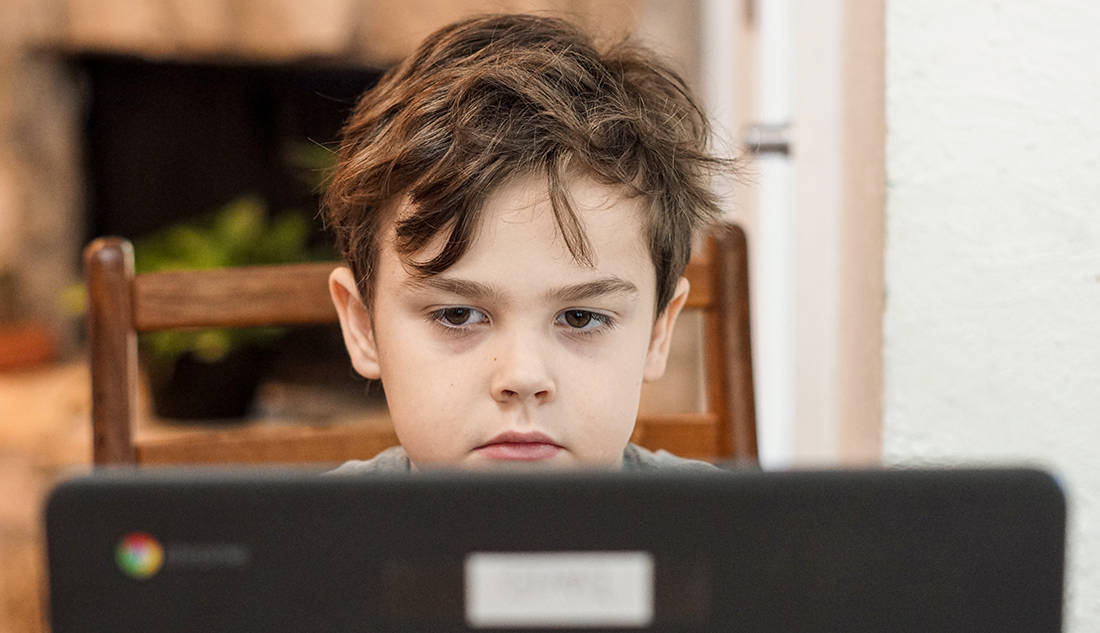


Gov. Brad Little recently announced a small grant program to give parents and students more education options during COVID-19. However, less than 10% of Idaho K-12 students will be eligible to receive funds. This will not be enough to support all Idaho parents who are trying to give students an education that best fits their needs.
The Strong Families, Strong Students initiative will provide $1,500 per eligible student, with a maximum of $3,500 per family. The money can be used by families who have been “impacted by COVID-19” through “school building closures” or “job loss.” Eligible families can purchase any educational materials that “facilitate distance learning.” You can read more about the program here.
Since the beginning of the COVID-19 pandemic, parents have lost patience with public schools' failure to open and poor virtual learning environments. One Idaho mother reported being in “survival mode.” Now, parents are experimenting with new solutions that best fit their children’s education needs. For instance, parents have begun coordinating with each other to form micro-schools or “pandemic pods.”
Home-based micro schools or pandemic pods are popping up all over Idaho and the country. Pods involve family coordination of small groups so that students can learn alongside their peers in a safe environment. In pods, parents can act as teachers, hire an outside tutor, or learn from a public, charter, or private school’s already-existing virtual instruction under parental supervision. Pods give working parents more time to earn a living or do other activities they would normally do if their children were in school. Groups can set up flexible school hours that work the best for their families and host classes in an environment they feel safe in.
Parents are also sending their children to learning hubs run by schools and community centers. Hubs were originally created for essential workers, but have since adapted to be open to everyone. Learning hubs are like pods, but they are run by professional groups. Learning hubs have been proven to keep kids safe even during the early days of COVID-19 lockdown. For example, the YMCA led learning hubs for more than 40,000 children with “very few reported cases of COVID-19 and no outbreaks.” In the pandemic's national hot spot, New York City, the YMCA’s learning hub center cared for over 10,000 students at 170 sites and had no records of more than one case at a given site.
Other parents across the country and in Idaho are turning to traditional home school models, or to private schools with in-person or hybrid instruction.
The advantages of these options are parents' ability to analyze student performance daily, provide instant feedback, and adjust their student’s education environment if necessary. Parents can analyze student and teacher interactions daily, and in pods they have decision rights over hiring and firing of teachers. These feedback mechanisms are vital to ensuring student success, especially when the traditional school models during COVID-19 have become unsatisfactory.
However, many families are at a disadvantage when it comes to affording these alternative learning options. For example, pandemic pods can be expensive. According to one New York Times estimate, pod schools in New York can cost up to $25,000 a year. Another source estimates pods can cost between $10 and $55 per hour.
Entrepreneurs have already begun responding to this shift in education resources. Nationwide groups like SchoolHouse, PandemicPods.org, Ujama, and Pods Academy are matching families with teachers customized to student’s needs and giving academic transcripts to pod students. SchoolHouse also evaluates teachers on a regular basis, offers teachers mentorships, and performance-based pay. Ujama has even teamed up with a FinTech company known as Braid to distribute grants for poor families trying to start a pod.
Despite the help of entrepreneurs, many low-income families will still be unable to access innovative education options. Gov. Little’s small grant program shows Idaho is open to increasing education choice for families and students. However, these grants will have a minimal impact.
Idaho policymakers could act during the next session to allow more families access to alternative learning options. The best education policy to advance would be Education Savings Accounts (ESA). ESAs have been adopted in five states — Arizona, Florida, North Carolina, Mississippi, and Tennessee.
With ESAs, low- to middle-income families can afford to start a pod, or have their children join a learning hub or attend a private school.
With ESAs, state governments deposit a percentage of state per-pupil spending into a government-authorized account with restricted uses. This money is usually given to parents on a debit card and can cover any customized learning expenses a student needs, from private tutoring to higher education costs. Some ESAs even allow for the combination of public school classes and private services. ESA eligibility requirements vary across states. ESAs can be made available to all students or tailored to specific groups, such as low-income or special needs students.
For example, the ESA program in Arizona, known as the Empowerment Scholarship Account, is available to 22% of students statewide, and each account is worth an average of $14,185. That is more than enough funding for a parent of any income level to give their child a strong education fitted to their needs. Arizona’s program has no cap on the number of participating students, so all eligible students who apply are guaranteed funding. The Strong Families, Strong Students initiative shows the Idaho government is open to empowering students. But Idaho lawmakers will need to do more in the upcoming legislative session to give parents and students the education options they deserve.
Help the Idaho Freedom Foundation fight for education choice. Text "Index" to 208-514-4480 to sign up for IFF's new text club. Once enrolled, you'll receive important content that can equip you to fight for better education options here in the Gem State.

